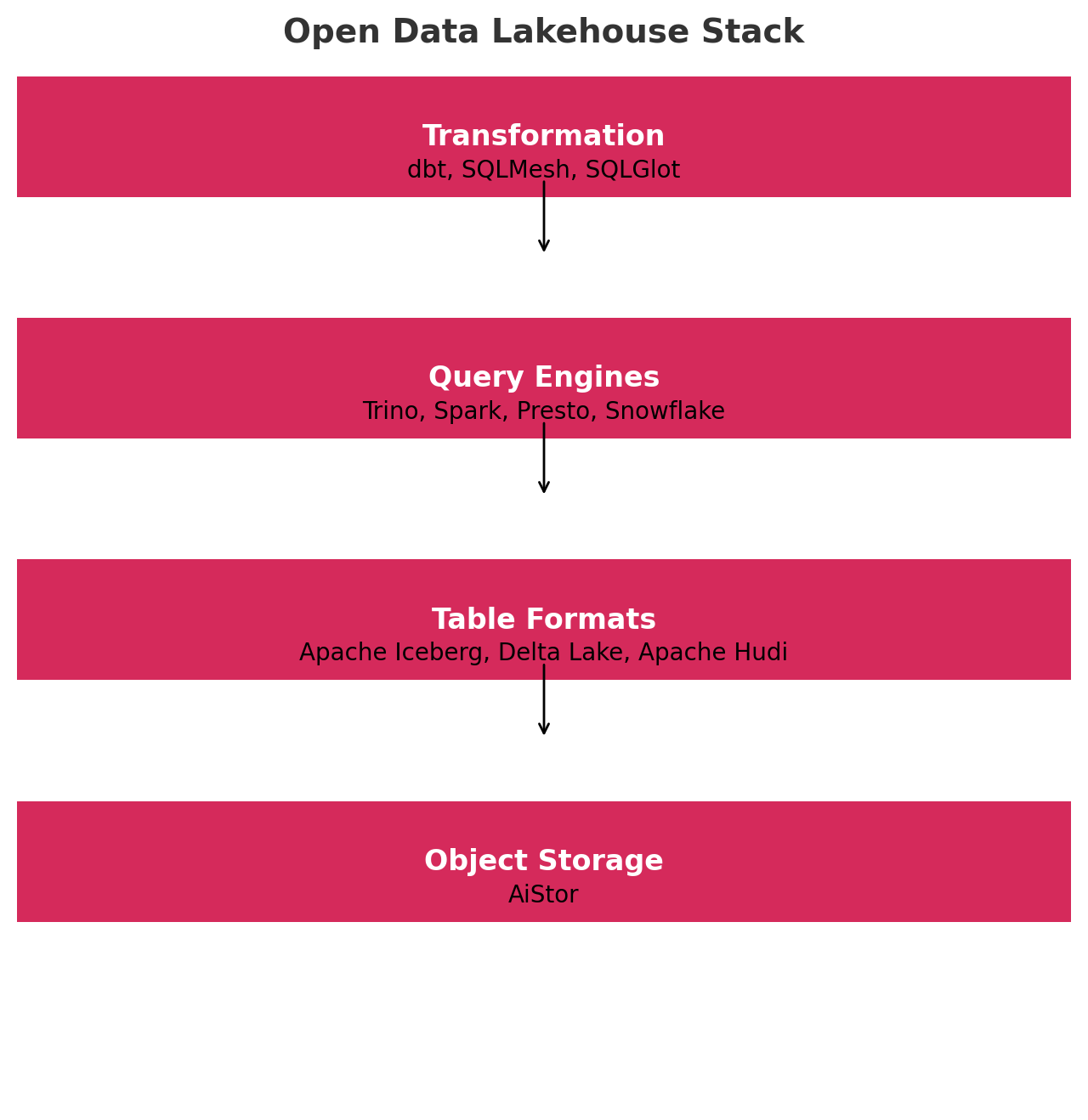Why an Open Lakehouse Approach Matters: Lessons from dbt’s Acquisition of SDF Labs

dbt (Data Build Tool), an open-source SQL transformation framework, has become a cornerstone for many modern data teams, offering flexibility and accessibility. Recently, dbt enhanced its portfolio with the acquisition of SDF Labs.
SDF Labs is a Seattle-based startup founded in 2022 by former engineers from Meta and Microsoft. The company developed a developer platform designed to enhance SQL comprehension across organizations, enabling data teams to fully leverage their data. Their platform offers features such as streamlined query writing and management, proactive quality and governance reports, and the representation of business logic as code. The platform is built upon Apache DataFusion, an open-source query engine, and SDF Labs has open-sourced several components to foster community collaboration.
Dbt stated in their announcement of the acquisition that the integration between these two companies aims to improve dbt's performance and enhance the developer experience by providing real-time feedback during SQL code development, allowing for immediate error detection and ensuring data quality earlier in the development process.
Investing in open-source—whether through acquisition, founding a project, or contributing—has consistently driven innovation and growth within the open-source community. Successful partnerships, such as Red Hat's investment in Kubernetes or Confluent's stewardship of Apache Kafka, have shown how open-source projects can flourish with the proper support while maintaining their community-driven ethos.
Since both dbt and SDF Labs operate under an open-core model—where core functionalities are open source while additional features may be proprietary—the acquisition of SDF Labs reinforces the value of open-source and open-standard data stacks, further solidifying their role in modern data infrastructures.
Related: Data Lakehouse Examples in Action
This acquisition is one more strand in the argument for open data lakehouse architecture in which every element of the stack has an open model. This openness can and should extend all the way down, from a foundation of open-source storage to the open table formats of Iceberg, Delta Lake, and Hudi, to the query engine, and now to a strengthened transformation layer driven by SQL with dbt and SDF Labs.
Now more than ever, the modern data stack is open.
The Need for an Open Lakehouse
An open lakehouse architecture leverages the open table formats Apache Iceberg, Delta Lake, and Apache Hudi to provide scalable, flexible, and vendor-agnostic data management. Unlike proprietary data platforms, an open lakehouse ensures that organizations maintain control over their data, enabling seamless integration across various tools and technologies.
Performant object storage solutions like AIStor play a critical role in this architecture. They provide high-speed, scalable storage that is essential for managing the growing volume of structured and unstructured data in data lakes.
With the combination of open compute and open storage, organizations can achieve the agility and cost-efficiency needed to support modern analytics and AI/ML workloads.
Key Benefits:
- Interoperability: The open data lakehouse stack allows data in object storage to be accessed across multiple query engines, from Trino to Spark and Dremio, increasing competition among compute vendors and driving user-centered innovation.
- Performance Optimization: Open lakehouse solutions optimize storage and compute separately, providing both cost efficiency and scalability. This is particularly true when your open lakehouse stack is built from the start on performant object storage.
- Data Governance and Compliance: Open formats allow for better control over metadata, auditing, and policy enforcement. This complements object storage's regulatory compliance features like object locking, versioning, and encryption for data immutability and security.
How dbt Fits into the Open Lakehouse Ecosystem
While dbt is an essential tool for SQL-based transformations, it primarily focuses on orchestrating transformations rather than providing storage or computing capabilities. It serves as the "T" in ETL, transforming raw data into actionable insights by leveraging any of the query engines.
In a typical lakehouse architecture, dbt works alongside open table formats such as Apache Iceberg, Delta Lake, and Hudi, which provide ACID transactions and schema evolution. Additionally, performant object storage like AiStor underpins the entire stack, ensuring high availability, scalability, and durability. This combination empowers organizations to build scalable, flexible, and interoperable data pipelines while maintaining full control over their data.

Embracing an Open Future
To fully leverage the benefits of open-source technologies, organizations should:
- Select the Right Tools: Evaluate open-source projects based on community support, scalability, and compatibility with existing infrastructure.
- Adopt Gradually: Implement open-source solutions in phases to ensure smooth integration and minimize disruption.
- Contribute Back: Engage with the open-source community by sharing improvements, reporting issues, and collaborating on new features.
- Security and Compliance: Establish policies and best practices to ensure consistent, secure, and compliant use of open-source technologies. Ensure that your use of the software falls within the parameters of the license agreement.
Future Proof with an Open Stack
The acquisition of SDF Labs by dbt Labs underscores the critical choices organizations face when building out their data stack. Now more than ever it is clear that the modern data stack is an open one.
As organizations navigate increasingly complex and distributed data workflows, an open lakehouse approach offers the flexibility, scalability, and interoperability necessary to remain agile and future-proof. By committing to open standards throughout the stack, businesses can cultivate innovation while ensuring long-term sustainability and adaptability in a rapidly shifting technological environment.
If you have any questions, please contact us on Slack or at hello@min.io.






